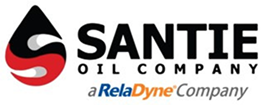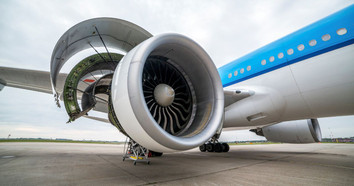Safety is paramount in aviation. Even a small problem can have serious consequences, so aircraft owners, pilots, and mechanics need to monitor the condition of their equipment, especially aviation lubricants.
Lubricants play a crucial role in the safe and efficient operation of an aircraft, and knowing when to replace them is vital. We'll dive into the importance of monitoring degradation in aviation lubricants, the tests for determining their condition, and what to look for when interpreting the test results.
What Are Aviation Lubricants?
Aviation lubricants are specially crafted oils and greases for use in aircraft engines, hydraulic systems, and other critical parts. Aviation engines, for example, operate at much higher temperatures than their automotive counterparts, which puts a significant strain on their components. Due to this, aviation lubricants have to meet the strict standards of the aviation industry and handle high levels of heat, pressure, and corrosion.
Why Monitor Their Degradation?
Continuous use of aviation greases leads to their breakdown over time. This can happen for a wide variety of reasons, including contamination, oxidation, and thermal stress. Lubricant degradation ultimately reduces its effectiveness and can lead to mechanical failure.
Failure of aircraft components can range from minor issues to major failures. In the aviation industry, any issue—no matter how small—can pose unacceptable safety risks.
Tests for Monitoring Lubricants
Several types of tests are available to monitor the condition of aviation lubricants. The most common tests include the following:
- Spectroscopic Analysis
- Ferrography
- Viscosity Measurement
- Acid Number Testing
Most tests are non-destructive, meaning the oil doesn't need to be changed, and the component doesn't have to be removed.
Interpreting Test Results
Interpreting lubricant test results requires careful analysis. Typically, reports will provide a brief commentary on the results. This includes confirmation that the oil remains fit for service, whether any issues came up during analysis, chemical and physical characteristics of the oil, and historical comparison charting to enable an overview of oil performance over a period.
Adopt a Proactive Approach to Aviation Safety
Aviation lubricants are critical for ensuring safe and efficient aircraft operations. Regularly monitoring their condition should be a standard practice for aircraft owners, pilots, and mechanics. By adopting a proactive approach, they can avoid unnecessary repairs, save time and money, and ensure the safety of everyone on board. Using these best practices for monitoring degradation in aviation lubricants gives you confidence in the analysis and keeps your aircraft operating safely.

